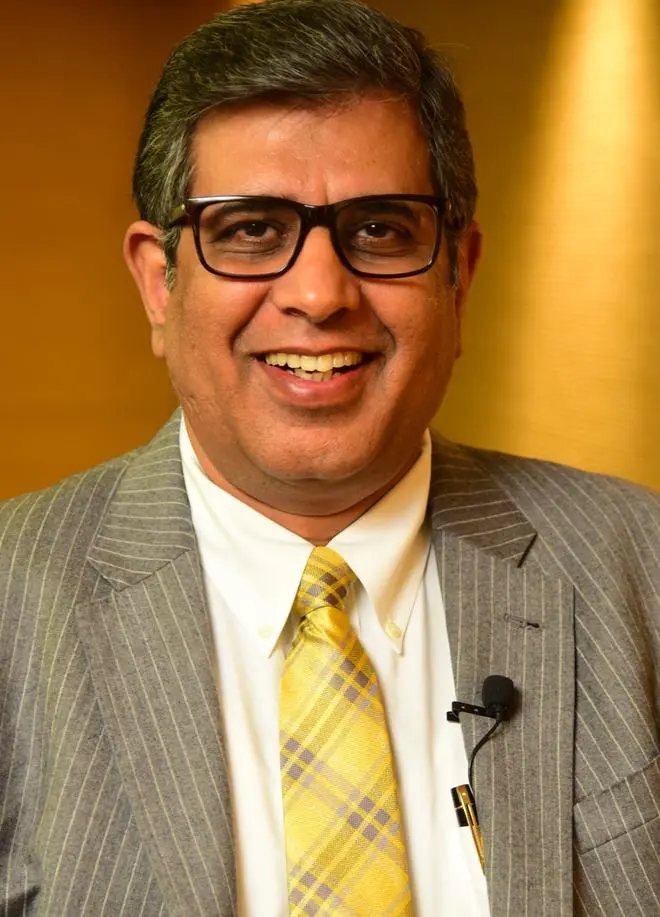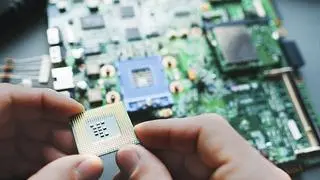Globally, FY22 was a historic year for Dell Technologies as it hit more than $100 billion in revenue and grew by 17 per cent as technology adoption accelerated post the pandemic. The company’s business in India grew 64 per cent year-on-year in FY2022, whereas the revenue of the Asia Pacific and Japan (APJ) region grew 34 per cent, indicating that the big bets placed by Dell’s leadership are paying off. BusinessLine spoke with Chuck Whitten, Co-Chief Operating Officer, Dell Technologies, and Alok Ohrie, President & Managing Director, Dell Technologies India, to understand how the tech major is navigating the global macro headwinds and the tech innovations being developed by it. Excerpts
The pandemic has accelerated tech adoption. Do you see this growth rate continuing and sustaining itself?
Whitten: - The world is transforming digitally. The reality is you’re either born a technology company or you evolve a technology-led strategy, or you become obsolete. So, digital transformation is a top priority for customers, and that’s what’s scaling our growth. It’s our customers that are looking for a partner as they try to reshape their business in what’s a digital world. So, our strategy to be the point of contact and the simplifier and the conduit to all of this innovation, in both the PC and the infrastructure market, is really resonating. We believe, that digital transformation is not going backward, and if anything, we’re in the early days of a long journey of digital transformation out there. We see sustained growth in our markets.
Ohrie: - It’s a very clearly established fact that the entire Covid period was a big tragedy for all of us, and my heart goes out to all of those who were impacted by it. But, it has established that technology is at the front and centre of anything and everything that we do, either in our personal lives or on the business side. From my conversations with the CXOs, the CEOs, and the boards, it is clear that they want to do much more than what they have done in the past with regard to allocating higher budgets, more into technology, more into the deployment of technology.
How are you preparing for the macroeconomic headwinds moving ahead with rising inflation? In particular, how do you see that playing out in India, which is a price-sensitive market?
Whitten: We are going to work to protect our profitability and liquidity, so we can continue to invest in markets that we want, that we view as long-term potential, and we have proven the ability to deliver results, no matter what the market condition. We were strongly profitable during the 2008 financial crisis, as an example. We were able to do that because of the breadth of our portfolio. So our diverse portfolio helps us mitigate in the event of a downturn and, while certainly, price is an element of any conversation with customers in any environment, good macro or weakening macro, in reality, our customers are talking about the value created from their digital transformations. And so, when they deploy our technology, they are doing it to make their businesses more efficient, more productive, and grow faster. While price sensitivity is always part of the equation, the reality is there is a bigger value equation at play.
Ohrie: - In the Indian context, our economy has shown resilience and a lot of it comes from the fact that it is a domestic consumption-driven economy. We do have levers of services business that has now got a global footprint. But, fundamentally, it is the demographic that lends itself so well to bring strength in the economy. It is our job to ensure that we are there for the customers, to understand their business issues, look at their imperatives, look at what their plans are, whether it is on a cost-cutting side, whether it is new projects that they are launching, to create a business model that is digitally enabled, whether it is a new business itself. Why miss out on the fact that the start-up ecosystem in India is the third largest now, attracting an amazing amount of investments from all over the world. The flow of money in the start-ups has not dried up, in fact, it is growing. So these are the companies that are defining the next business models for traditional industries, which will drive disruption for the traditional players as well. So, that will force everybody to look at IT a little more differently.
The infrastructure solutions business globally has been growing rapidly. So will it pick up further momentum and how much is India going to contribute to this growth?
Whitten: The multi-cloud topic is really important in the future of Dell. Multi-cloud is the future of customer environments, and that is beng proved right now. The reality of today is, and this is a global statement, 90 per cent of customers have both on-premise and public cloud environments and 75 per cent use three or more different clouds and that is actually a strategic choice they are making. They say that because they want access to all the innovation of public cloud providers and the security and performance and resilience you get on-premise. And as the world distributes to the Edge, where more workloads have to stay at the edge because of latency. You can’t send data back to a public cloud and deliver the real-time autonomous experiences you need in a smart factory or a smart hospital or smart city. Multi-cloud is the solution.
We are not another cloud stack trying to compete against public clouds. We like to offer customer choice. We work with all of the major public clouds, and as you have seen, we are building a rich ecosystem to help enable that multi-cloud experience, given our position and infrastructure, which is advantageous in this market. It is arguably the biggest bet we are making as a company, to get alongside our customers and help them take that multi-cloud by default and turn it into a multi-cloud by design, to make it strategic, to make it all work together.
The PC business is almost 64 per cent of your overall revenue. But PC usage remains a little under duress, especially in a predominantly mobile-first market like India. How do you see the PC market evolving for Dell going forward?
We see it a bit differently than you do, and that is the PC right now has never been more essential and the pandemic was a bit of an inflection point in its usage. Now, remember, our business is focused on the parts of the PC business that are the most durable. So the parts that arguably can’t be substituted with a smartphone. So that is our commercial PC business, think high-end consumer, think gaming. It is proven that in a world where customers want to do anything from anywhere, that is shop from anywhere, game from anywhere, and work from anywhere, the PC is an essential device. It is going to co-exist in the consumer market with smartphones and other devices.
The really important part of our business is the commercial market. So, the shift in usage models that you have seen companies go through, is quite profound. PC has gone from being not just the most essential productivity device for doing your work, but it is also a visible symbol of does my company care about me, are they giving me the best technology possible to do my job? So, the access to technology, the conduit of an employee experience is now this PC device, and we are asking it to do more than it has ever done. Our view is that devices are going to co-exist, but the PC has periodically been called dead or obsolete. We have gotten yet another reminder of just how essential it is, particularly in the commercial context.








Comments
Comments have to be in English, and in full sentences. They cannot be abusive or personal. Please abide by our community guidelines for posting your comments.
We have migrated to a new commenting platform. If you are already a registered user of TheHindu Businessline and logged in, you may continue to engage with our articles. If you do not have an account please register and login to post comments. Users can access their older comments by logging into their accounts on Vuukle.